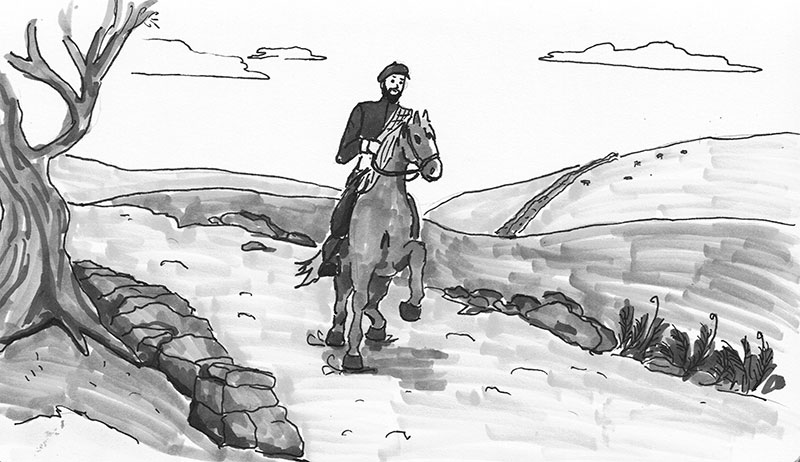Mr Deasy laughed with rich delight, putting back his savingsbox.
—I knew you couldn’t, he said joyously. But one day you must feel it. We are a generous people but we must also be just.
—I fear those big words, Stephen said, which make us so unhappy.
Mr Deasy stared sternly for some moments over the mantelpiece at the shapely bulk of a man in tartan filibegs: Albert Edward, prince of Wales.
—You think me an old fogey and an old tory, his thoughtful voice said. I saw three generations since O’Connell’s time. I remember the famine in ’46. Do you know that the orange lodges agitated for repeal of the union twenty years before O’Connell did or before the prelates of your communion denounced him as a demagogue? You fenians forget some things.
Glorious, pious and immortal memory. The lodge of Diamond in Armagh the splendid behung with corpses of papishes. Hoarse, masked and armed, the planters’ covenant. The black north and true blue bible. Croppies lie down.
Stephen sketched a brief gesture.
—I have rebel blood in me too, Mr Deasy said. On the spindle side. But I am descended from sir John Blackwood who voted for the union. We are all Irish, all kings’ sons.
—Alas, Stephen said.
—Per vias rectas, Mr Deasy said firmly, was his motto. He voted for it and put on his topboots to ride to Dublin from the Ards of Down to do so.
Lal the ral the ra
The rocky road to Dublin.
A gruff squire on horseback with shiny topboots. Soft day, sir John! Soft day, your honour!… Day!… Day!… Two topboots jog dangling on to Dublin. Lal the ral the ra. Lal the ral the raddy.
—That reminds me, Mr Deasy said. You can do me a favour, Mr Dedalus, with some of your literary friends. I have a letter here for the press. Sit down a moment. I have just to copy the end.

